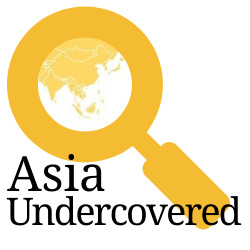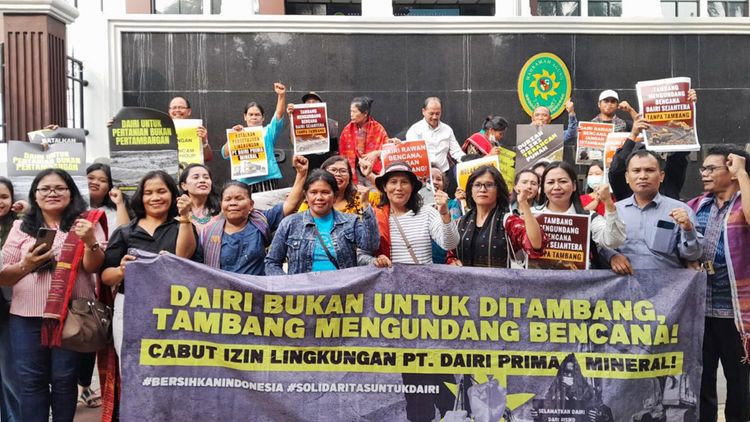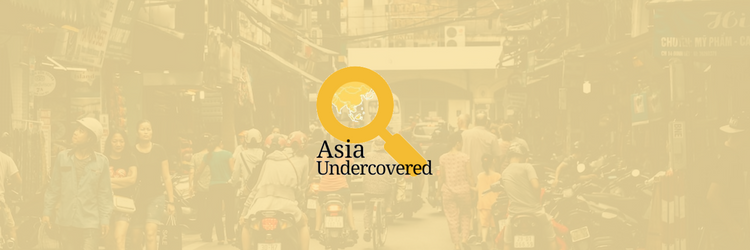Asia Undercovered 13 August 2020



Informing the uninformed: Uyghur Genocide
As many of you know, Asia Undercovered has regularly highlighted stories about the human rights crisis in Xinjiang. But many remain mostly uninformed, partly due to western media not giving enough prominence to the story. Here’s a great thread of informative pieces that you can also share to make sure your friends, colleagues, and families understand the situation and why we need global action.
Another issue is outlets choosing to downplay stories about Xinjiang due to editorial or legal issues, as happened to Shaun O’Dwyer when he wrote about the Uyghur crisis for Japan Times.
Undercovered this week
The same troll army that helped Duterte get elected in the Philippines is now being used to drown out dissent around the pandemic, reports Lynzy Billing for Coda Story.
One student in China, Howey Ou, skipped classes to protest climate inaction. She has now been barred from returning to school, and faces other punishment (Eduardo Baptista, SCMP)
Imagine if she was Tibetan or Uyghur? I doubt they’d have been given enough this much leeway.
Indonesia is currently considering extending special autonomy for West Papua. Activists are protesting this move, which they feel will only further a colonialist agenda, are are calling for a free and fair referendum (Asia Pacific Report)
Construction has begun on the Daimer Dam in Pakistan, which will be one of the highest dams in the world. Qamar-us-Zaman reports for The Third Pole on how environmentalists fear massive consequences while geologists worry building such a mammoth structure in a seismically active zone is too risky.
A history I knew little about: 96 year old Lee Hak-rae is the last surviving ethnic Korean who served in the Japanese military, and was convicted as a war criminal after World War II. Korean war criminals were regarded as collaborators by Koreans, but not as veterans by Japan (Ju-Min Park, Japan Times).
Elections
Elections have been called in the Malaysian state of Sabah. The results will be a test for the new ruling coalition. This piece in Straits Times gives an overview of the many parties, and dramas, at play.
Sri Lanka’s democracy has become rule-by-family. Parliamentary elections saw President Gotabaya Rajapaksa’s older brother win an overwhelming 2/3rds majority – meaning the ability to do as they please. Minority Tamils and Muslims could see increased clampdowns as the Rajapaksas cement power (Trust).
In Singapore, the People’s Action Party is already trying to show that it’s not an oligarchical party, but one with diversity. But that is problematic, says Kirsten Han.
And another take on the decision to postpone the Hong Kong legislative election – it reflects weakness, not strength.
Geopolitics
There’s a data battle taking place in the Mekong Basin. While evidence shows that China’s dams are impacting fisheries, the country itself is releasing reports showing that the dams benefiting downstream countries – conveniently ignoring that the Mekong benefits from floods and inconsistent seasonal flows (Bangkok Post).
China is also increasingly aggressive in Vietnamese territorial waters, asserting its claim to the entire South China Sea. Rajaram Panda argues that Vietnam needs to stand up to China, or it will lose access to valuable coastal economic assets (Global Asia)
It got little attention, but Indonesia’s Defense Secretary (and former Presidential candidate) visited India last month. Something to watch is whether Asia’s second and third largest countries cooperate more on security issues (Jarrdy de Haan, Future Directions).
Solutions Stories
I lived in Jakarta for nearly 2 years, and never knew that there were portions of the city’s 400 year old walls remaining. They are under threat from planned river widening, but some are fighting to preserve this piece of colonial heritage (Nivell Rayda, Channel News Asia)
And I absolutely loved this piece by Reina Gattuso in Atlas Obscura about the missing vegetables of South India, and not only because it was about my heritage region. It uses a nearly-century old cookbook as a gateway to explore issues around crop diversity, industrial agriculture, and culture wonderfully.

Asia Undercovered: In-depth round-ups and analysis of the news, events, trends and people changing Asia, but not getting enough attention in the US media.





Member discussion